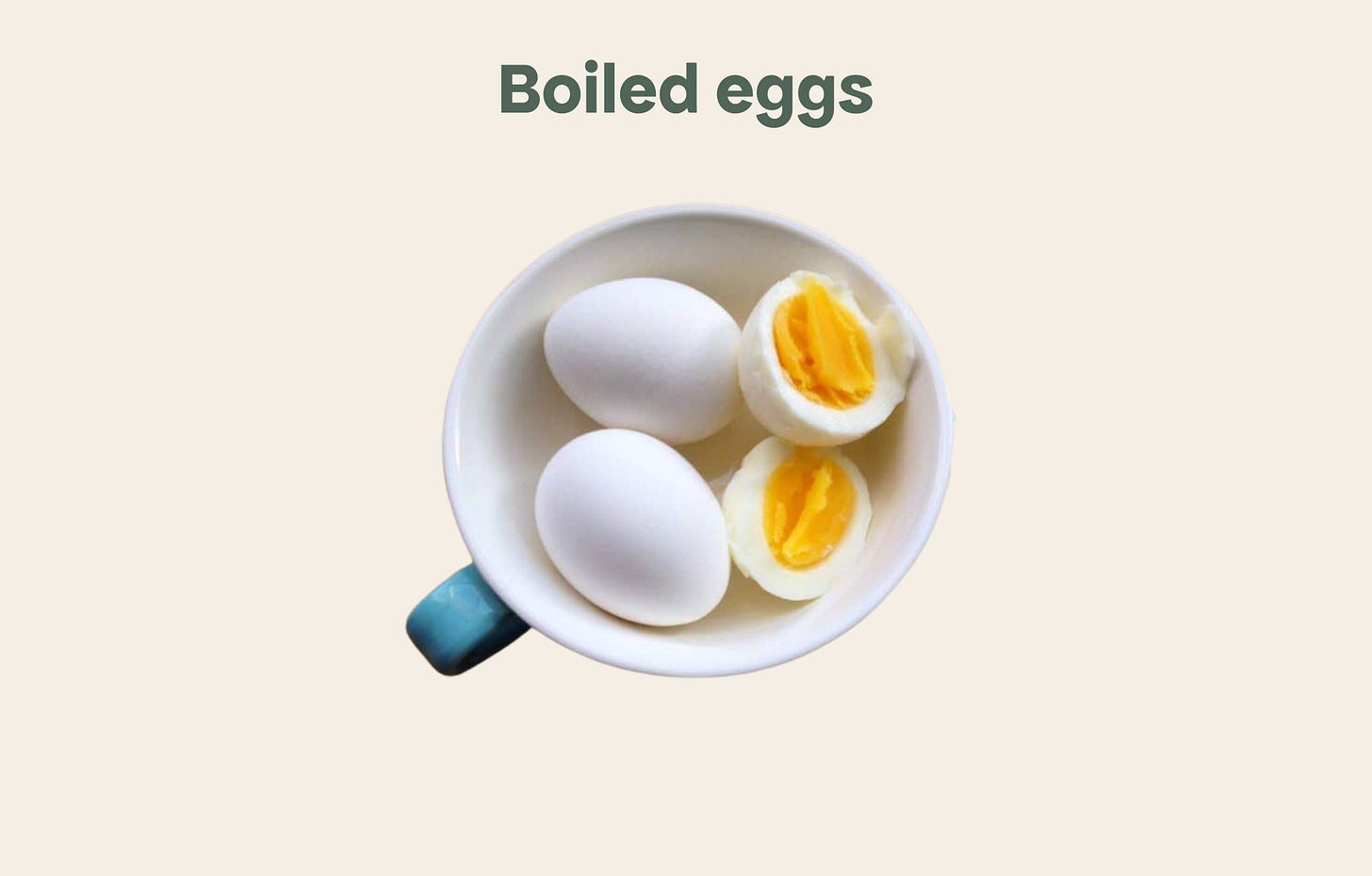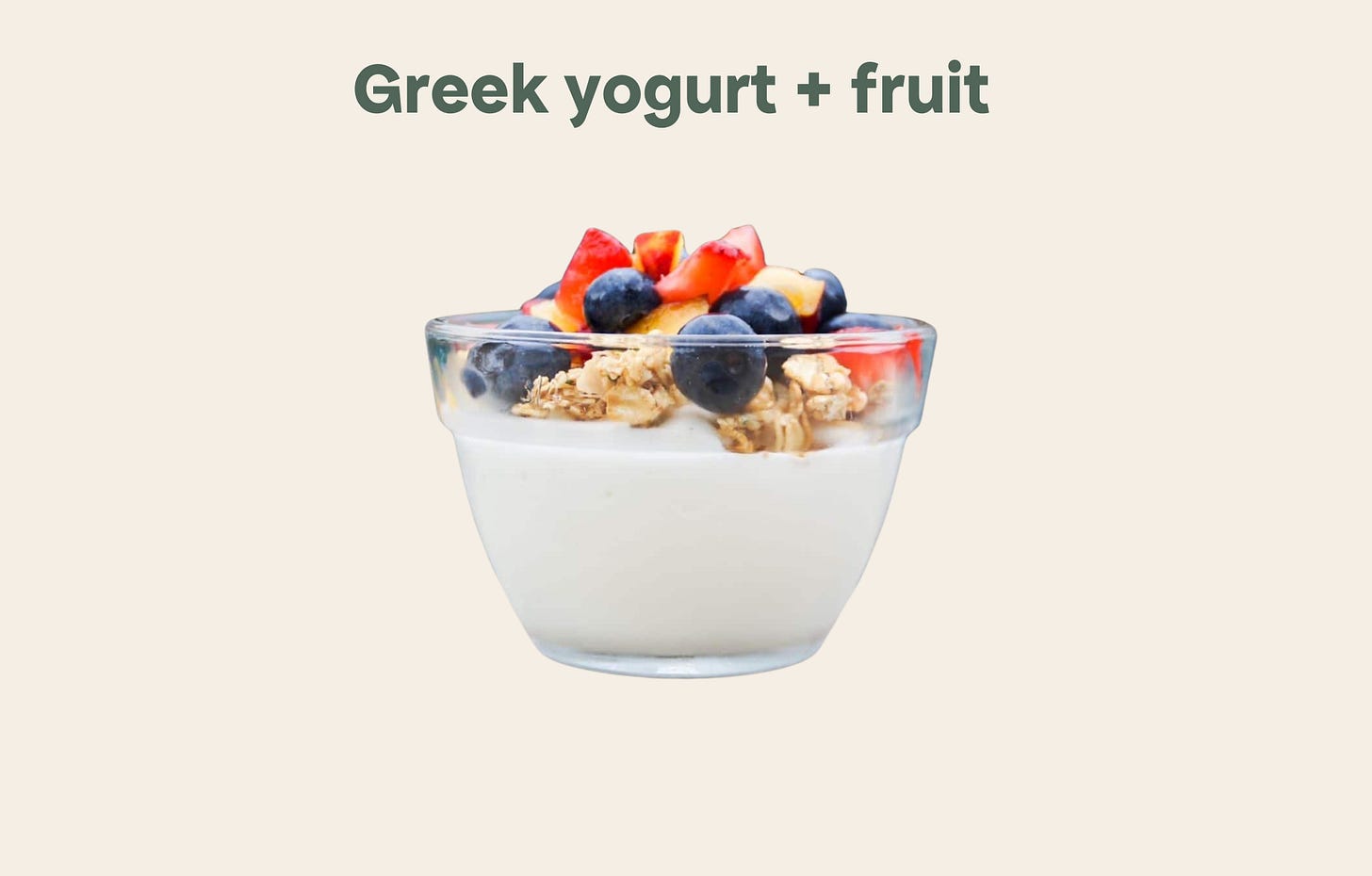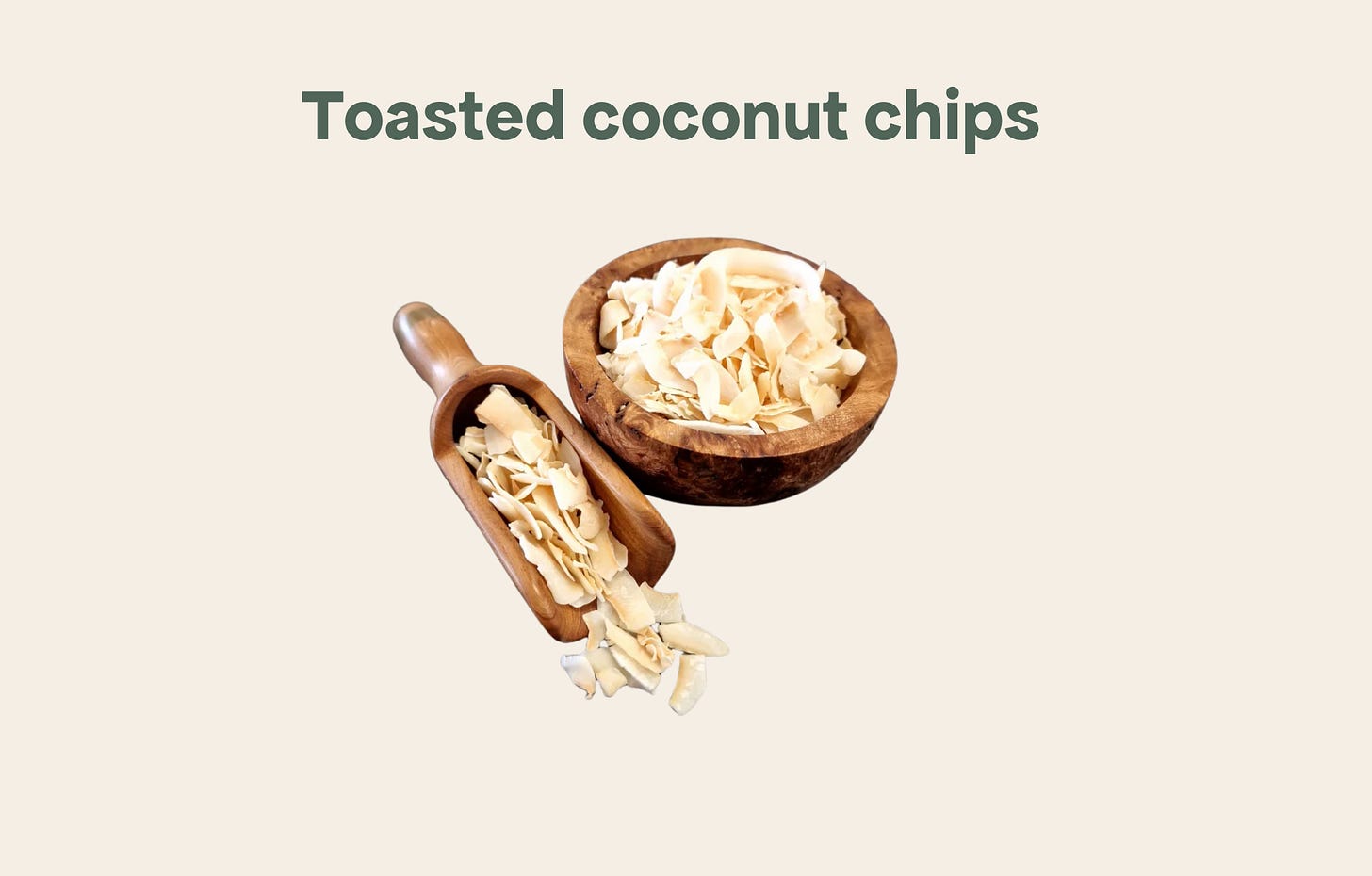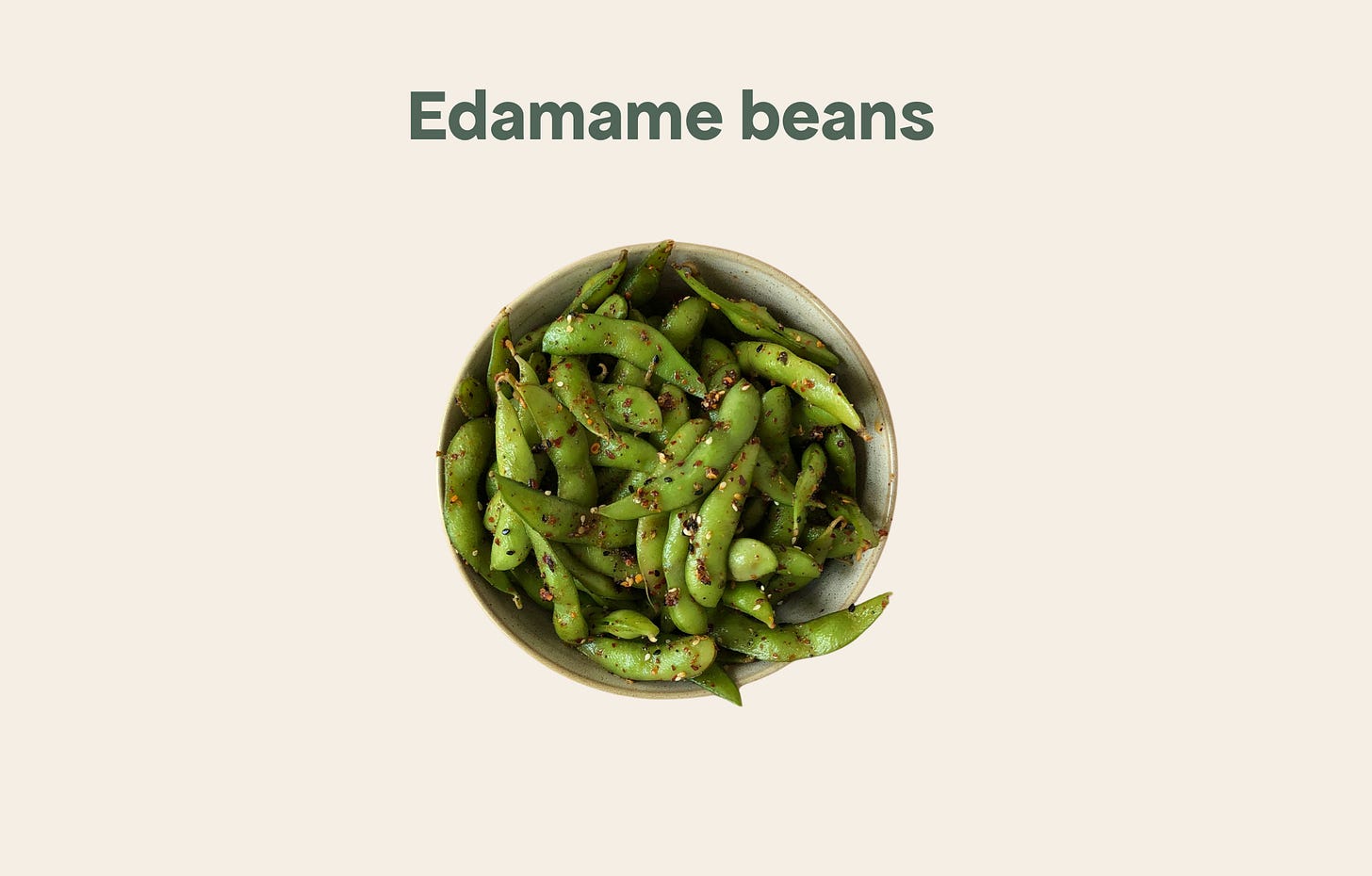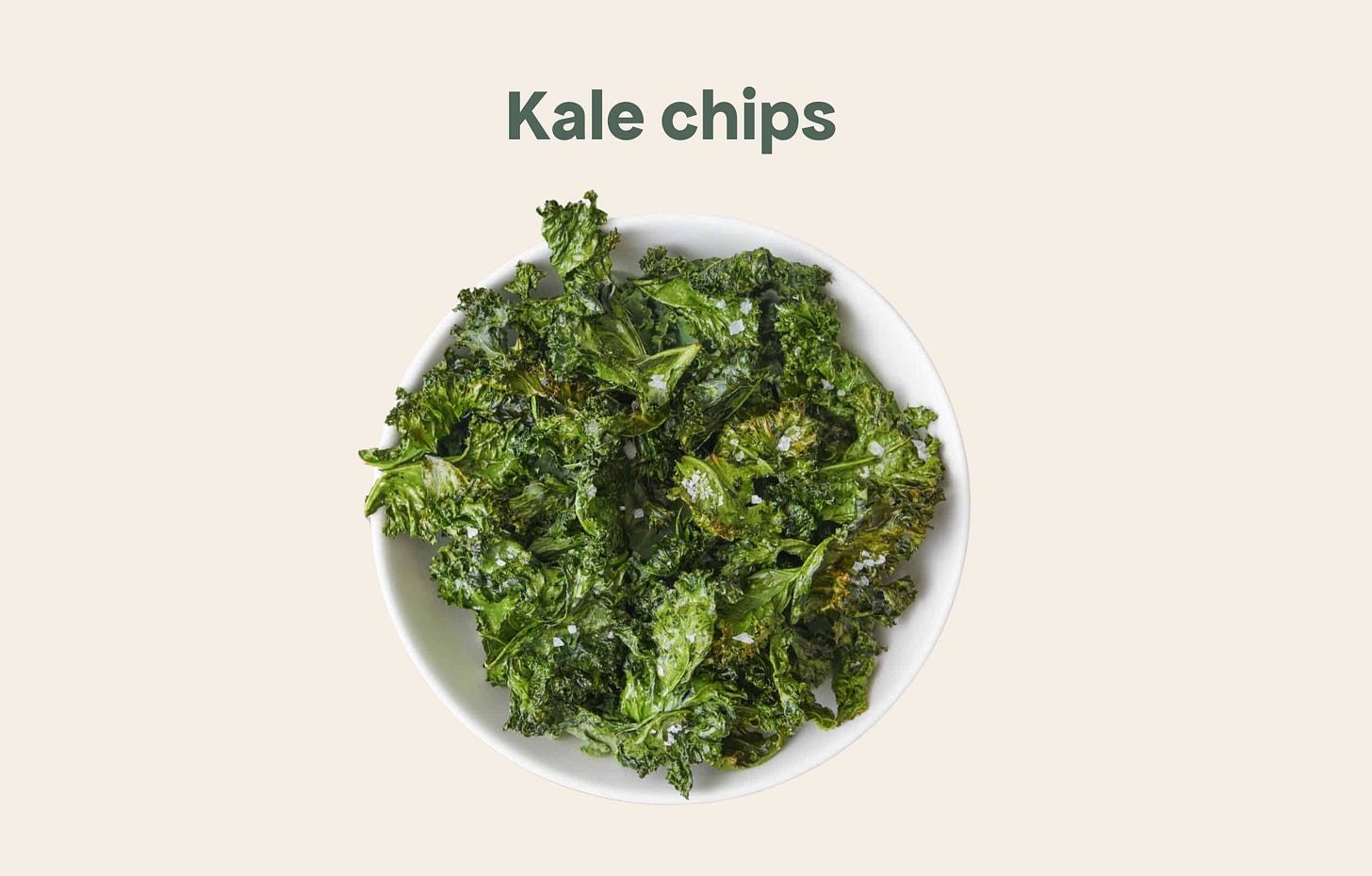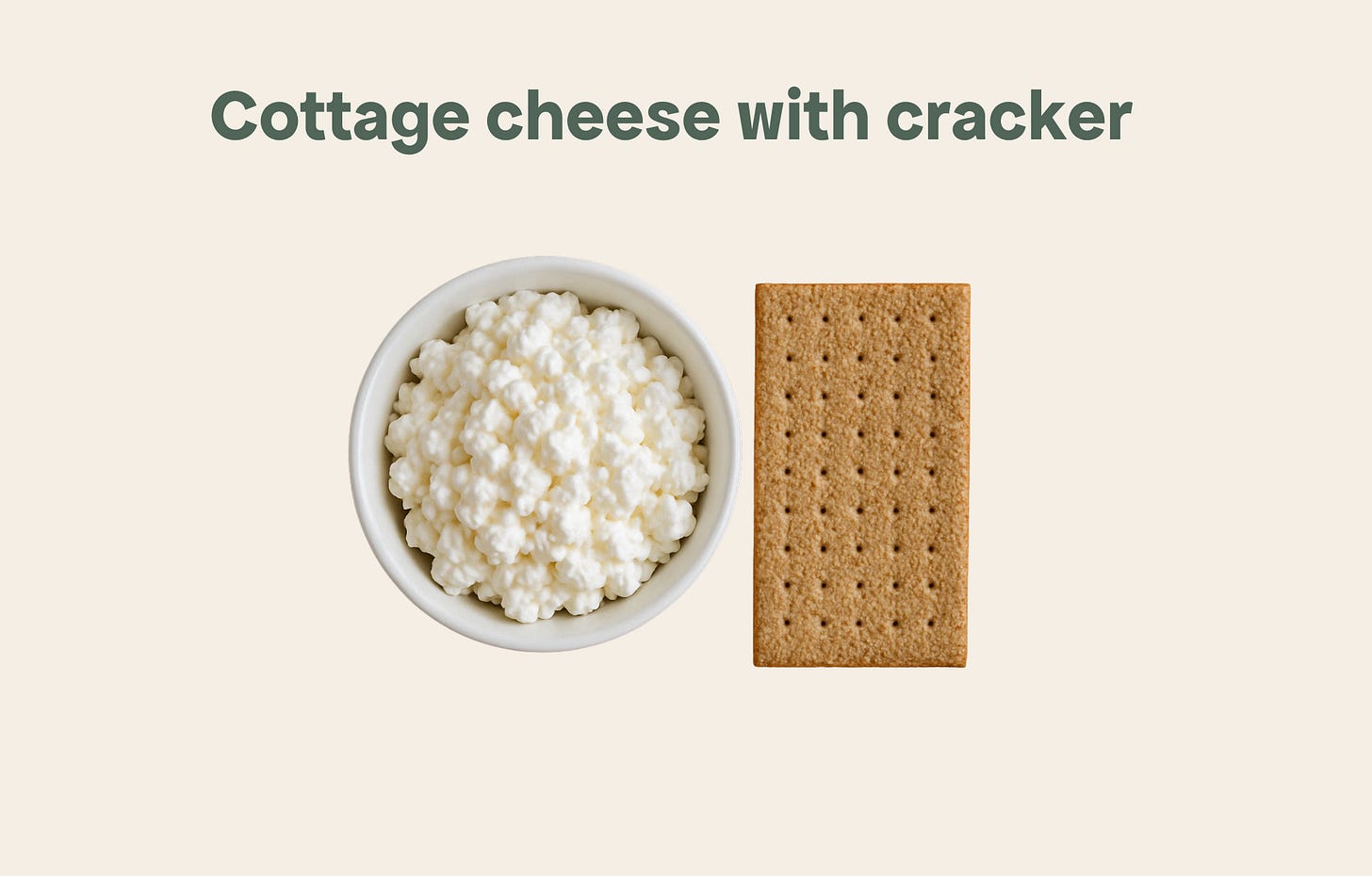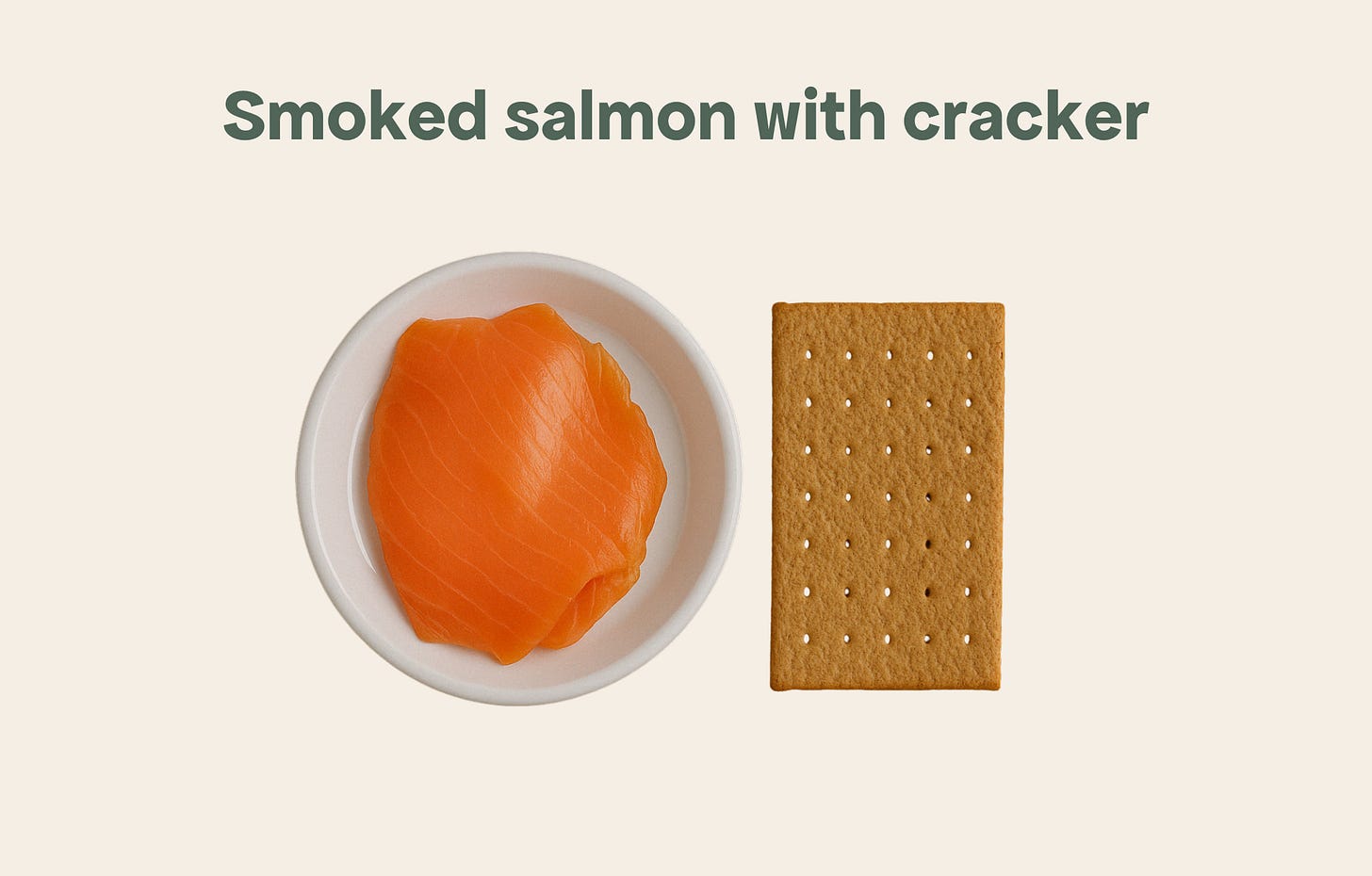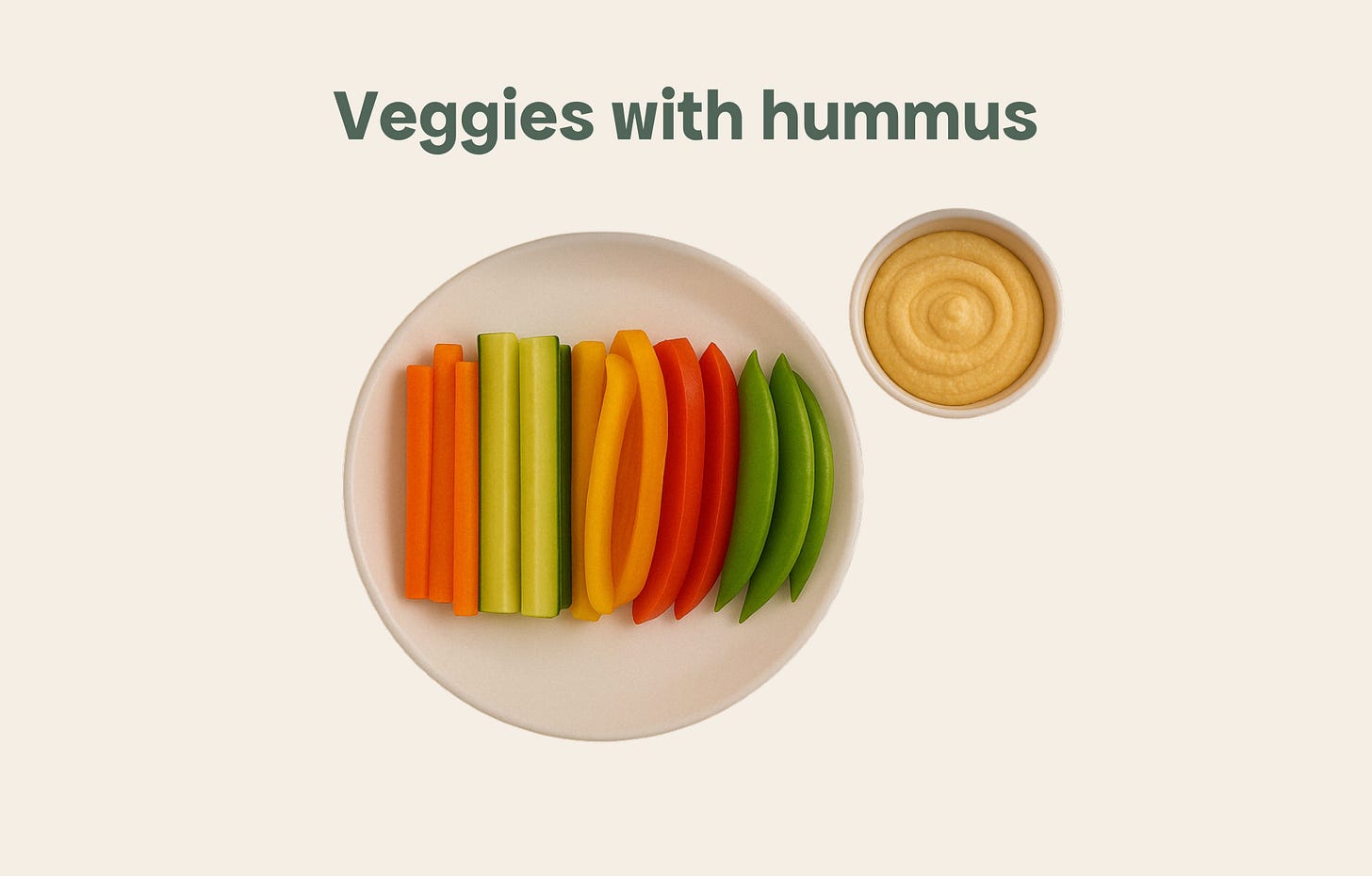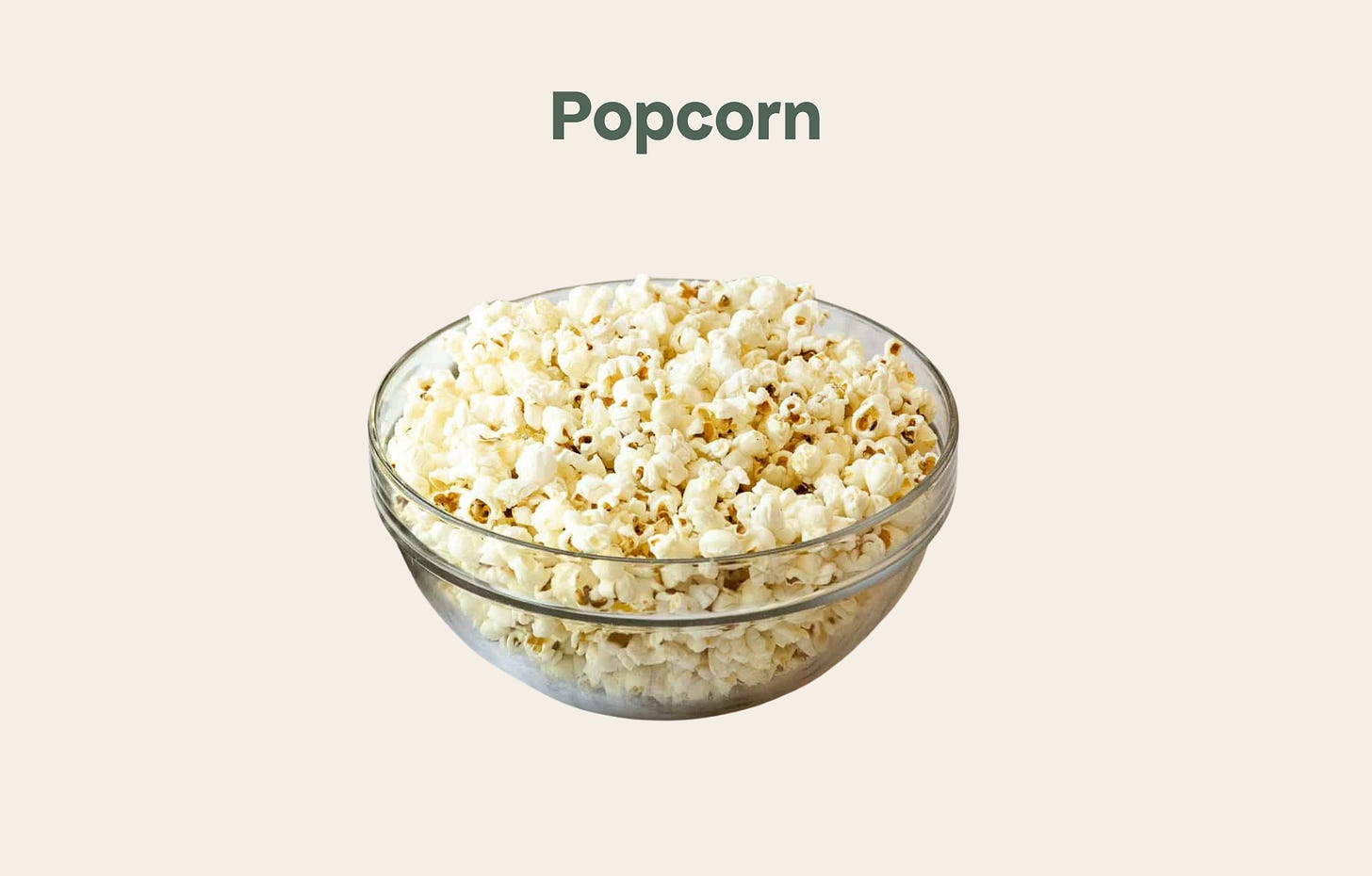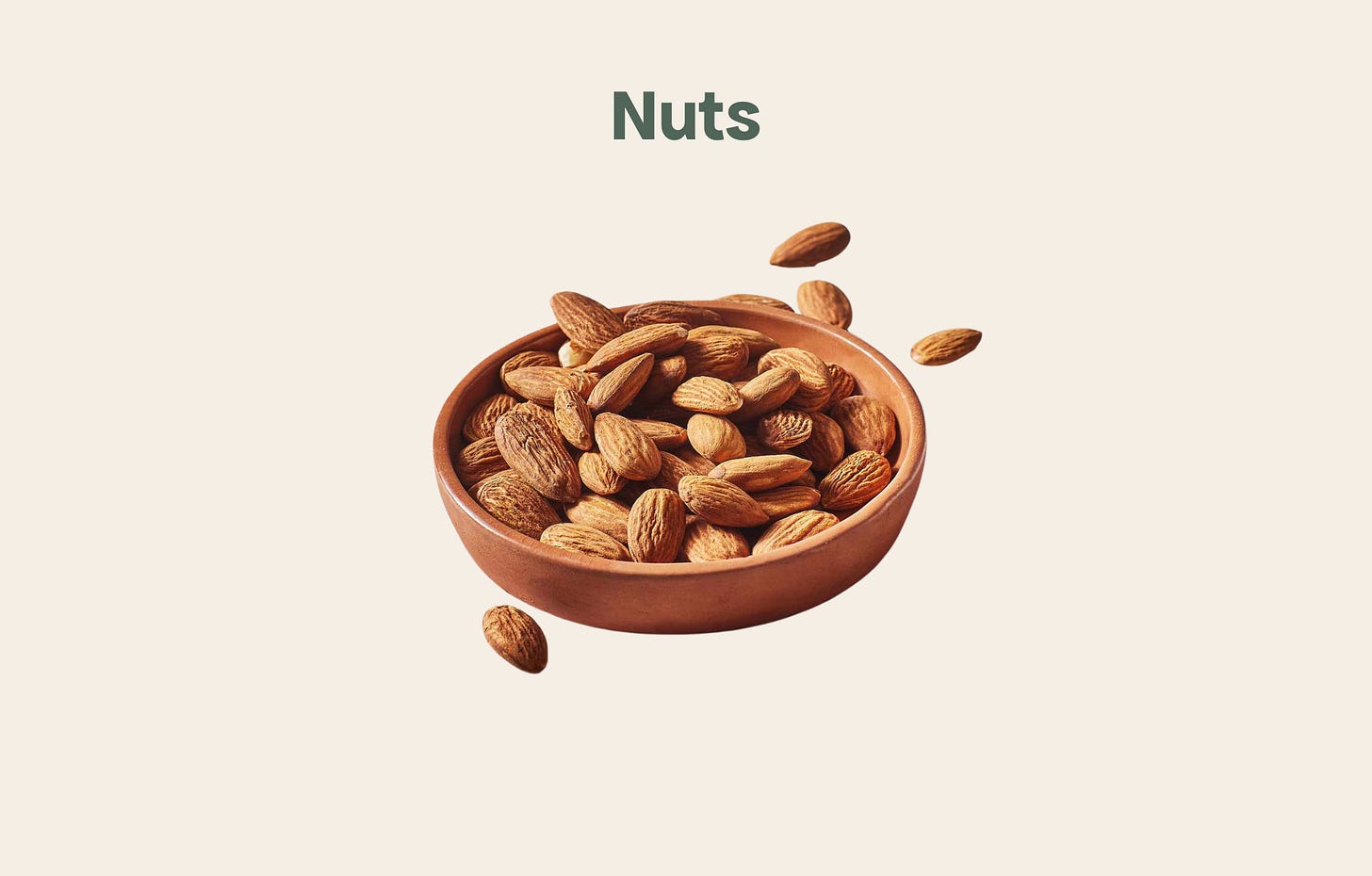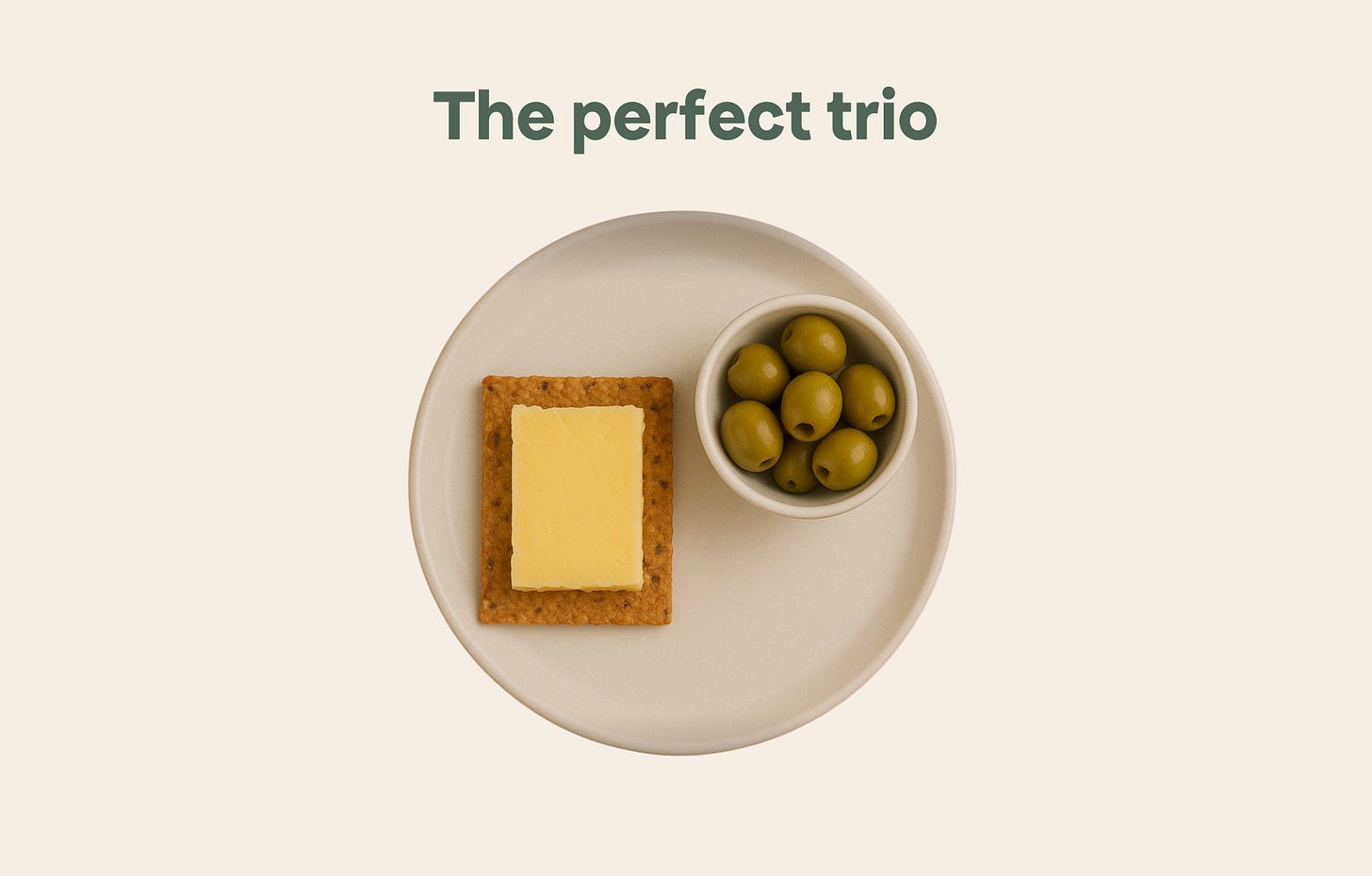Easy PCOS snack guide: 15 delicious options to control blood sugar
Should I be snacking? On what?
Hello everyone,
Snacking - a controversial topic. As a Nutritional Therapist, I get asked this question all the time:
Should I be snacking when I have PCOS?
There is a myth that snacking spikes our glucose levels and as a result we should avoid snacking at all costs. You might be surprised that that is not entirely true.
I found two great studies, one done in women with PCOS and one done in people with glucose issues, including Type 2 diabetes. I was shocked to see that 6 meals/day showed better glucose control than 3 meals/day.
Why?
Smaller Carbohydrate Loads: Each meal delivers fewer carbs, easing insulin’s workload.
Regular Insulin Secretion: Frequent meals promote steady insulin release, avoiding "overdrive" states7.
Hunger Management: Reduced hunger prevents overeating at subsequent meals, breaking the cycle of glucose spikes
There are of course also studies that show the intermittent fasting can be very good for type 2 diabetes which contradicts this.
Here is my take on this:
If you eat very balanced breakfast, lunch and dinner - with all of the nutrients needed (higher protein, healthy fats and complex carbohydrate) you shouldn’t feel the need to snack all the time. If you find yourself having 3-4 snacks a day, it’s a clear sign that you have not eaten enough for your main meals and you need to up your quantities or/and look at your macronutrients balance.
However, you should never go hungry. Not because hunger is bad but because of the behaviour it influences. When you are hungry, you are most likely to consumer foods high in sugars, overeat and make bad decisions. When you start feeling hunger, reach out for a healthy snack.
To confirm, snacking on unhealthy on treats like biscuits, chocolate, or crackers would ruin the findings of the studies above. That will send you on glucose rollercoaster of wanting more and more.
Calories
Another essential thing to remember the caloric input of snacks. If you find yourself someone that enjoys a snack, make sure you balance your main meals accordinly to avoid an excess of calories through snacks.
Snacks, may often seem low in calories because they are smaller, but be mindful as calories add up very quickly without you noticing.
What should I snack on?
Remember these two principles when you chose a snack:
Balanced options
Similar to meal prepping, snack prepping involves having balanced options that include a good source of protein, complex carbohydrates and healthy fats.
I want you to think about these three macronutrients as following:
Keeping me full → PROTEIN
Steady energy → COMPLEX CARBS
Satisfaction → FATS
Whole foods
Each time we eat is an opportunity to nourish ourselves with nutrients to support our overall health and wellbeing, so where possible prioritise whole foods.
Easy snacks ideas:
Boiled eggs
Perfect protein rich option that you can find in the “on the go” section of supermarkets like Sainsbury’s, Tesco or The Coop - this is going to help you feel fuller for longer and keep more stable blood sugar levels.
Greek yogourt + fruit
Add a little pack of Pip & Nut peanut butter/almond butter - pairing fruit with a source of protein like greek yoghurt or a source of fat like nut butter will help slow down the release of sugar and keep you fuller than the fruit itself. Choose any fruit you like, but for grab and go - bananas are the winner! Go for natural Greek yoghurt and avoid those with added fruit as this increases the sugar content. If vegan opt for a plant based option such as soy, almond or coconut yoghurt.
Mini packs of olives
Like Mr Filberts or Olly's - healthy fats option for when you crave something savoury, will keep more stable blood sugar levels. Simply be mindful of how much you’re consuming throughout the week as they’re high in calories - definitely not something for every day or multiple times a day!
Toasted coconut chips
Healthy fat option for when you crave something sweet - similar to the olives, when it comes to how often you have these.
Edamame beans
A great plant based protein and fibre combo that can be found in “on the go” section of supermarkets like Sainsbury’s, Tesco or The Coop. This is going to help you feel fuller for longer and keep more stable blood sugar levels.
Kale chips
If you’re a fan of crisps this is a great crunchy alternative packed with nutrients.
Cottage cheese
100gCottage cheese + 1 wholegrain crackers - protein meets complex carbs, opt for low-fat cottage cheese
Smoked salmon
Smoked salmon + x 1 cracker - omega-3 fats and protein combo
Veggies + hummus/tzatziki
Veggies (eg. carrot stick, cucumber sticks, bell peppers, mangetout) with homemade or shop bought tzatziki/hummus (50g-60g) - fibre, protein and healthy fats
Popcorn
20g popped
Nuts
30g complex carbs plus protein and healthy fats - pair it with a piece of fruit
A perfect trio
1x wholegrain cracker + 30g cheese + 1 tablespoon olives - the perfect trio of complex carbs, protein and healthy fats
My favourite crackers are Ryvita, Finns, Rude Health, Peter’s Yard and Nairns oatcakes. You might consider having 1 or 2 crackers, depending on the variety you choose and how hungry you’re feeling. Remember, your hunger levels will vary each day!
Batch cooking ideas
Banana oat cookies - great option if you enjoy a sweeter snack. I recommend pairing this with a great yoghurt for dipping! Or you might also consider adding 50g walnuts for added omega-3. These fatty acids can help reduce inflammation and improve insulin sensitivity, making them beneficial for managing PCOS symptoms. The extra fat can also help you keep fuller for longer.
Mini egg muffins or vegan muffins - protein rich and portable, these are excellent to make on a Sunday and you have a snack for your work week!
Energy balls are a great option to prep ahead if you’re a fan or granola bars. These recipes often include dates which are high in sugar. In the recipe they’re paired with oats, chia seeds and nut butter which is a great combo of protein, complex carbs and healthy fats. You might consider reducing the number of dates used and add 1tsp of cinnamon to help reduce the overall sugar content and give you a bit more sweetness.
Pro Tips:
Portion everything into containers at the start of your week
Keep emergency snacks in your bag, car and desk. If you work at a school or any environment where they don’t allow nut prioritise other non-perishable snack options and plan snacks ahead so you don’t rely on what’s available in the staff room!
Mix and match from different categories to keep things interesting. Focus on what flavours and textures you enjoy!
Remember, it's about having options that keep your blood sugar stable and energy levels steady throughout the day. Experiment and see what works for you! Doing a food diary and keeping a note of your intake, mood and energy levels is a great way to develop an understanding of what’s working for you!
What about granola bars, protein bars and protein shakes?
Protein bars, granola bars, and protein shakes can seem like convenient, healthy options, but many of them are highly processed and high in added sugars. While they can be helpful in emergencies or as an occasional option it's best to avoid relying on them regularly. Instead, consider getting into the habit of prepping your own snacks at home as described above which can be both healthier and more satisfying.
When shopping, take some time to explore the “grab and go” section in the supermarket for options that don’t have added sugar. Be mindful that supermarkets often place high sugar, convenience snacks in prominent spots to tempt you when you're hungry and looking for something easy. Finding healthier grab and go options does take a little extra effort but it’s worth it for better nutrition.
By planning ahead and choosing snacks thoughtfully, you can support your overall health and energy levels while avoiding the blood sugar crashes that can worsen PCOS symptoms. Choosing snacks that combine protein, complex carbs and healthy fats provides steady, lasting energy instead of the quick highs and lows caused by sugary options. Happy snacking!
See you next Sunday!
Francesca
Papakonstantinou, E., Kechribari, I., Sotiroudis, T.G., Nikolettos, N., Zampelas, A., & Tentolouris, N. (2016) ‘Effect of meal frequency on glucose and insulin levels in women with polycystic ovary syndrome: a randomised trial’, European Journal of Clinical Nutrition, 70(5), pp. 588–593. doi:10.1038/ejcn.2016.17
Papakonstantinou, E., Papanikolaou, K., Dimitriou, T., Vasara, E., Satiety, M., & Tentolouris, N. (2018) ‘Effects of 6 vs 3 eucaloric meal patterns on glycaemic control and satiety in people with impaired glucose tolerance or overt type 2 diabetes: A randomized trial’, Clinical Nutrition, 37(6), pp. 2065–2072


